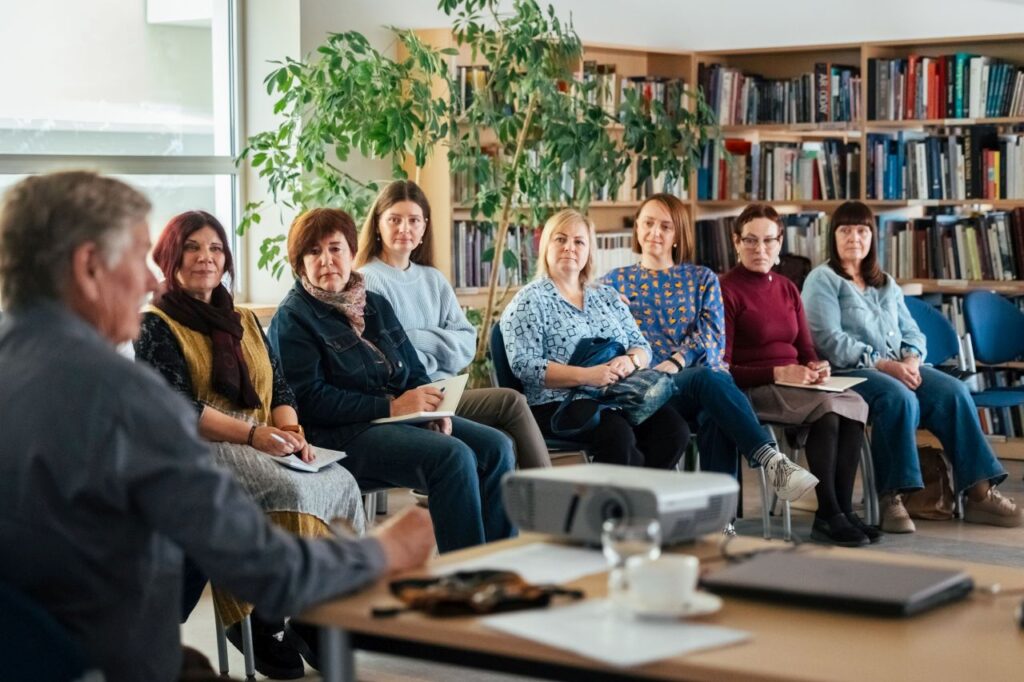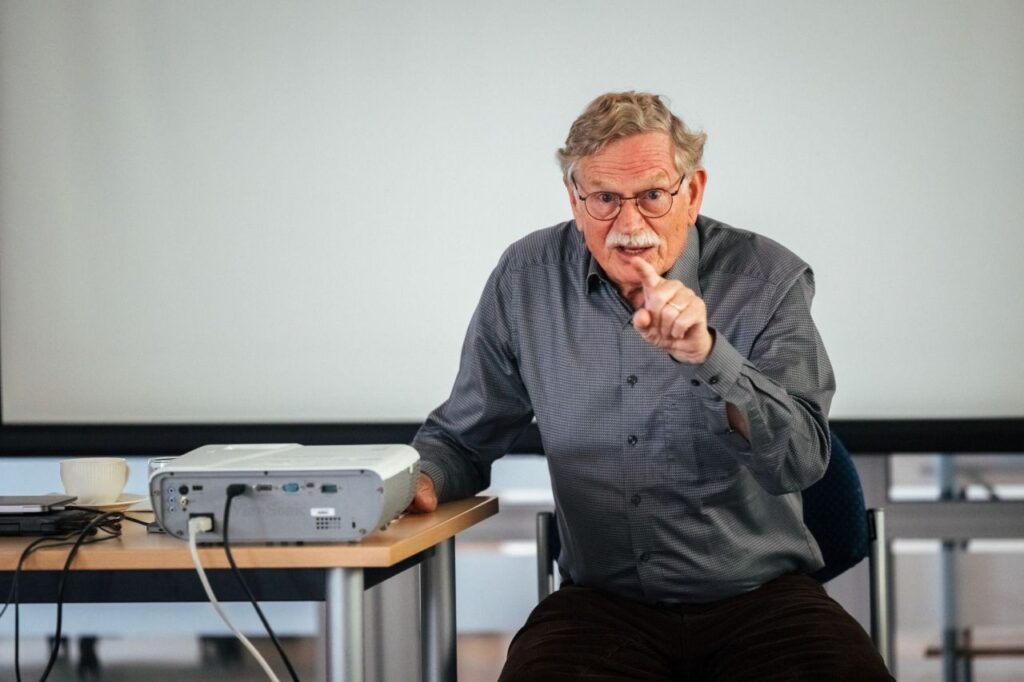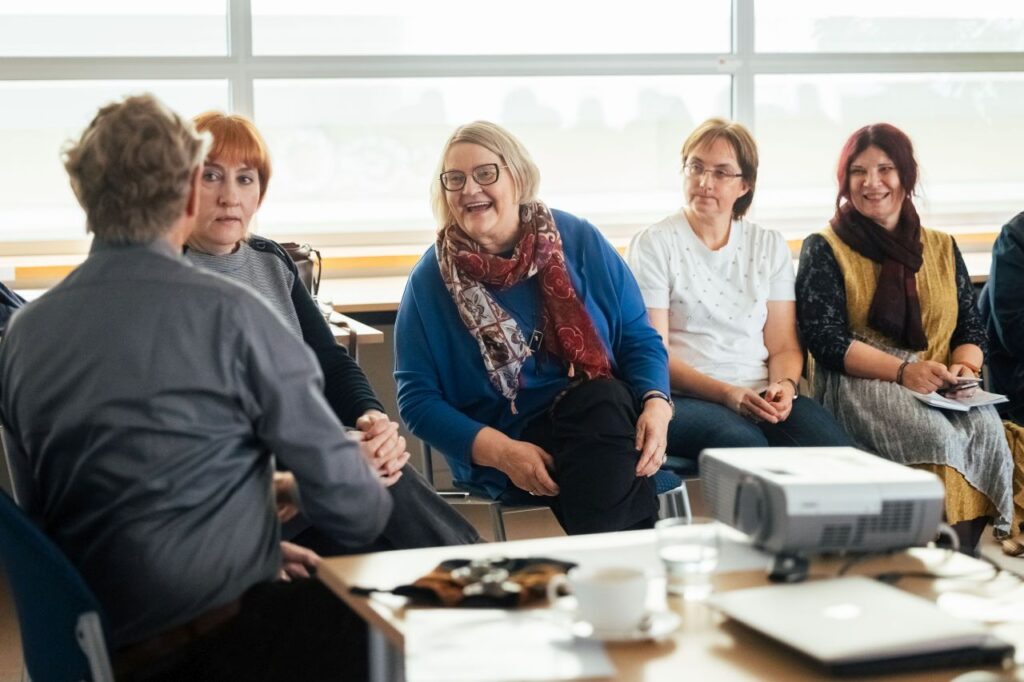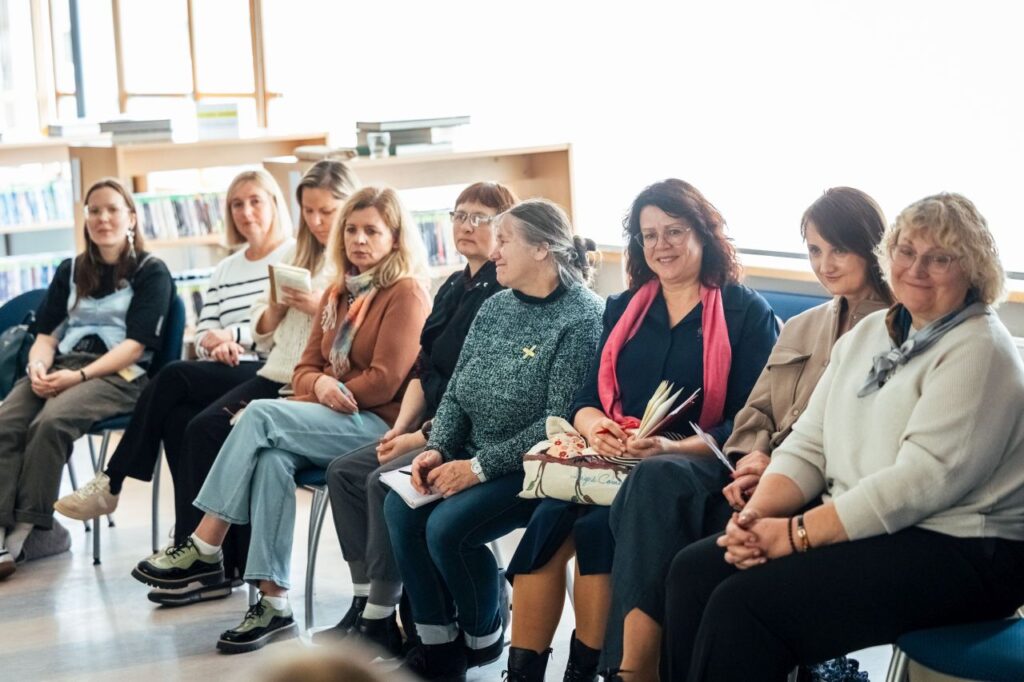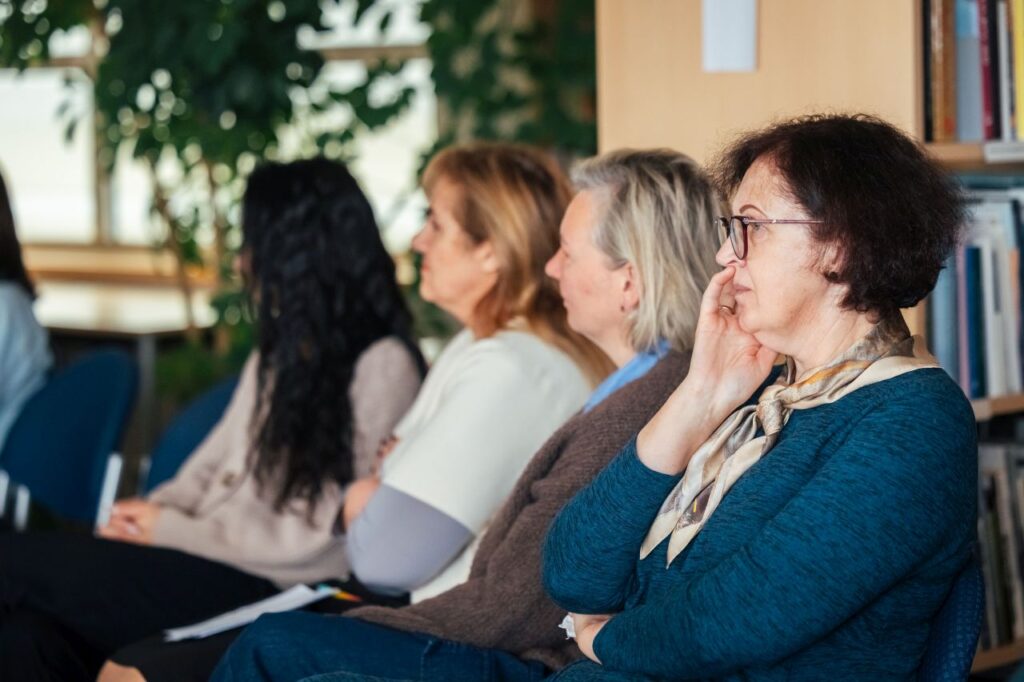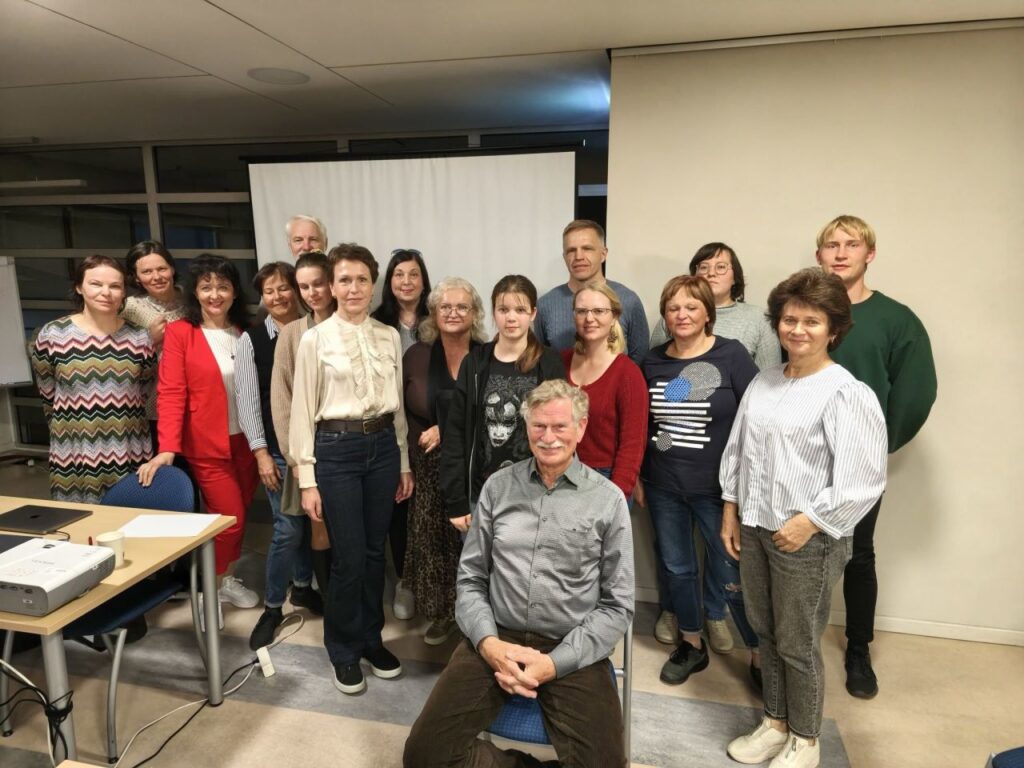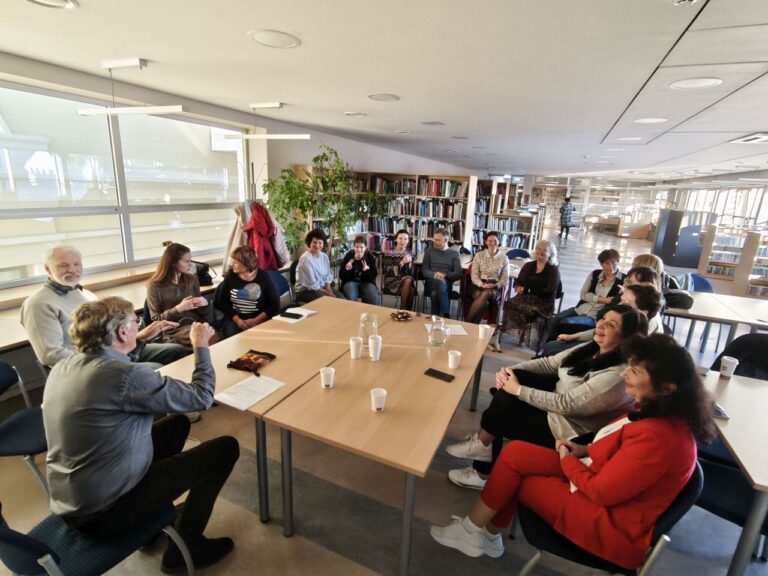Storytelling art training took place at the Panevėžys County Gabrielė Petkevičaitė-Bitė Public Library as part of the “Erasmus+” programme’s adult education accreditation project, organized together with municipal public libraries of the Panevėžys region. The training was led by an invited expert from Germany – professional storyteller Richard Martin.
Thirty specialists from the Panevėžys region storytelling libraries network, which has been operating since 2021, took part in the training. The event was particularly relevant to librarians who use storytelling in their daily work – in educational activities, club sessions, and cultural events aimed at different age groups. Alongside experienced participants, newcomers who are only beginning to discover storytelling as a method also joined.
This was the third meeting between the network’s specialists and the storyteller Richard Martin. This continuity allows participants not only to deepen their knowledge and enhance their skills but also to reflect on whether their application of the storytelling method is moving in the right direction. Ongoing collaboration with a professional enables systematic growth, skill development, and expansion of creative storytelling techniques.
During the sessions, participants and the lecturer focused on the fundamentals of effective storytelling: making eye contact, storyteller posture, facial expressions, gestures, and the use of direct and indirect speech. They also learned how to structure a story and build a compelling plot. The didactic role of stories was emphasized repeatedly – for librarians, storytelling is a way to establish dialogue with communities, bring people together, encourage sharing of experiences, and nurture creativity.
The lecturer shared practical tips on how to engage groups both before and after storytelling. Participants also exchanged ideas – they presented their own methods, discussed artifacts used in storytelling, and explored different presentation forms. It became a valuable opportunity to learn from one another.
In their feedback, participants expressed their appreciation for the chance to meet a professional storyteller and hear new stories they could adapt in their own work. They valued both the lecturer’s insights and their colleagues’ constructive feedback on their storytelling styles, expressive tools, and presentation approaches. These training sessions once again showed that storytelling is not only a method but also a way to build meaningful connections, foster creativity, and learn from one another in a community setting.
Richard Martin was delighted to work with a group for whom storytelling is not just a professional tool but also a personally meaningful practice. He praised the participants’ ability to collaborate, exchange ideas, and grow together while observing each other’s progress. According to the lecturer, what is especially motivating is the participants’ high level of engagement – many have already developed their own style and method, and, most importantly, they show a clear determination to continue deepening their knowledge and sharing their experience with others. Inspired by this encounter, Richard Martin expressed his wish to return to Panevėžys and continue the training cycle in the future.
“The opportunity provided by “Erasmus+” to invite professionals and organize training that meets the needs of partner specialists is one of the programme’s greatest advantages,” said Project Manager Virginija Švedienė. “It is not only a significant contribution to professional development but also a chance to strengthen community ties – bringing together adult educators across the region to pursue shared goals, foster learning, and unite library communities. Such meetings create space for meaningful dialogue about the values that matter to us all – togetherness, creativity, openness, and lifelong learning.”
Virginija Švedienė also highlighted another distinctive feature of Richard Martin’s training – the sustainability of the stories at its core, accumulated through centuries and even millennia of human experience. According to her, it is precisely this enduring quality that gives storytelling its unique power to connect generations, cultures, and people.
During his stay in Panevėžys, Richard Martin also led a creative session for the English conversation club’s “Let’s Talk” volunteers at the library. He introduced storytelling techniques that can be effectively applied in language learning, emphasizing how stories help to memorize new vocabulary, improve fluency, and enhance listening and speaking skills in a natural, engaging environment.
Later, Richard met with all members of the “Let’s Talk” club and hosted a live, interactive storytelling evening. The event featured a wide range of stories – from humorous and playful to mysterious and even chilling. Each story became a starting point for discussion: participants were invited to engage in creative activities, reflect on values, everyday paradoxes, and cultural differences and similarities. The evening was warm and communal – storytelling served not only as a language-learning tool but also as a bridge between different experiences, generations, and worldviews.
Virginija Švedienė Coordinator of Adult Education Activities

Photos by Gintaras Lukoševičius and Virginija Švedienė
